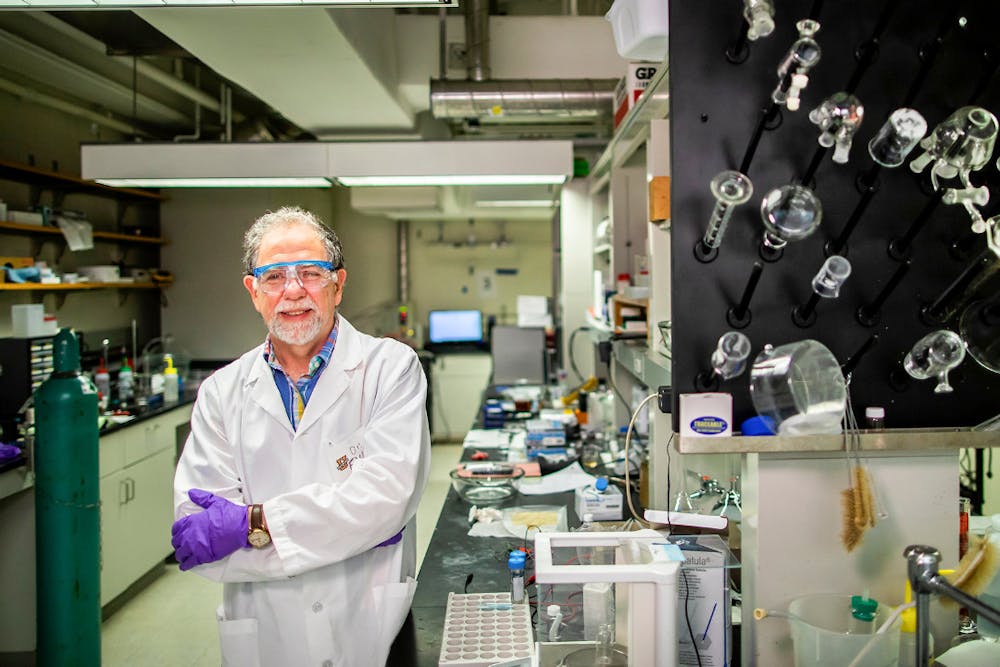Thomas Mallouk, the Vagelos Professor in Energy Research and chair of Penn's Department of Chemistry, has been awarded a $5 million grant to research renewable energy applications.
The US Department of Energy’s Energy Earthshots program aims to create more affordable and reliable clean energy sources. It awarded Mallouk and his colleagues $5 million over three years to continue their research into renewable technologies.
Mallouk’s team includes Karen Winey, who also previously received a $2.2 million grant from the Department of Energy, and Aleksandra Vojvodic from Penn’s School of Engineering and Applied Sciences, who has been studying the nature of bipolar membranes and their potential usage in renewable energy conversion.
“We’re focusing on the science of bipolar membranes, which have been used for decades for chemical separations, but only recently in renewable energy applications,” Mallouk said.
In 2014, Mallouk’s lab and a California Institute of Technology lab researched the challenges involved with electrolyzers, which split water into its elements and convert carbon dioxide into carbon-containing fuels. These labs discovered bipolar membranes can conduct positively charged ions on one side and negatively charged ions on the other.
“By combining new kinds of membrane components with theory and physical characterization on all the relevant length scales, we hope to understand more about how bipolar membranes work,” Mallouk said.
Bipolar membranes can produce green hydrogen, turn carbon dioxide into liquid fuels, and create electricity from hydrogen. They are also being explored for capturing carbon dioxide from the ocean to address climate change.
“We can exploit that knowledge to make electrochemical energy conversion more efficient and cost effective, and to invent new kinds of electrochemical devices based on novel membrane concepts,” Mallouk said.
RELATED:
Penn hosts Energy Week to generate awareness about scholarship, equity in energy
Penn Middle East Center loses all federal funding, a 'devastating' blow to its future
Energy Earthshots has granted $264 million in funding thus far, aiming to bring together researchers from different institutions to promote the transition from fossil fuels to a renewable energy economy.









